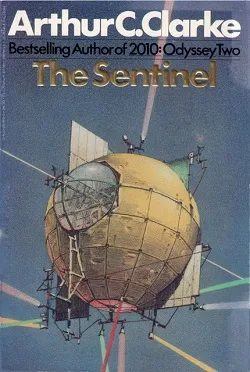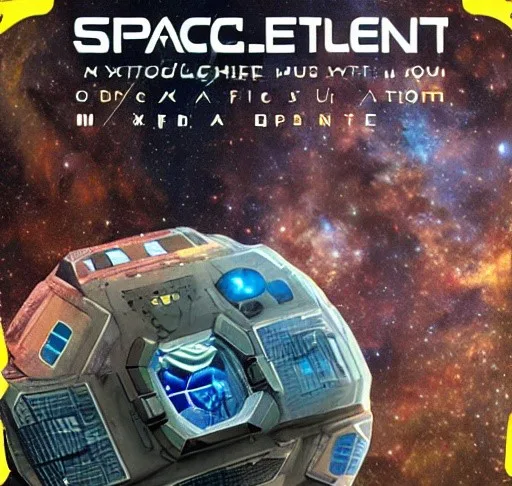"The Nine Billion Names of God" is a science fiction short story written by Arthur C. Clarke (2001) that was first published in 1953. The story is set in a Tibetan lamasery where the monks are attempting to list all the possible names of God in the belief that once the task is completed, God will bring about the end of the Universe.
The story touches on themes of religion, technology, and the search for meaning in life. The monks believe that the purpose of the Universe itself is to list all the possible names of God, which gives their lives a sense of purpose and meaning.
The story touches on themes of religion, technology, and the search for meaning in life. The monks believe that the purpose of the Universe itself is to list all the possible names of God, which gives their lives a sense of purpose and meaning.
The story raises the question of whether such a task is truly worthwhile or if it is merely a futile pursuit...
In a Tibetan lamasery, the monks are attempting to compile a list of all the possible names of God, which they believe will bring about the end of the Universe once completed. The monks created an alphabet three centuries ago that they calculated could encode approximately 9 billion names of God, each with a maximum of nine characters. However, writing out all the names by hand would take another 15,000 years.
To speed up the process, the monks rent a computer and hire two Western computer operators to program and install it. Although skeptical, the operators agree to assist with the task. Concerned that they will be blamed if the task fails, they delay the final print run until after they leave.
After their departure, they observe the stars going out overhead, seemingly without any commotion, while pausing on a mountain path on their way back to civilization. They realize that this must be the time when the monks are pasting the final printed names into their holy books.
The plot of the story
In a Tibetan lamasery, the monks are attempting to compile a list of all the possible names of God, which they believe will bring about the end of the Universe once completed. The monks created an alphabet three centuries ago that they calculated could encode approximately 9 billion names of God, each with a maximum of nine characters. However, writing out all the names by hand would take another 15,000 years.
To speed up the process, the monks rent a computer and hire two Western computer operators to program and install it. Although skeptical, the operators agree to assist with the task. Concerned that they will be blamed if the task fails, they delay the final print run until after they leave.
After their departure, they observe the stars going out overhead, seemingly without any commotion, while pausing on a mountain path on their way back to civilization. They realize that this must be the time when the monks are pasting the final printed names into their holy books.
Themes
Arthur C. Clarke's short story, "The Nine Billion Names of God," explores profound themes of human curiosity, the search for meaning, and the power of belief.
As the engineers initially perceive the project as a futile and meaningless endeavor, the narrative gradually delves into the deeper implications of their actions. One of the key themes that emerges from the story is the eternal human quest for knowledge and understanding, even in the face of seemingly insurmountable odds or seemingly absurd pursuits.
Another significant theme present in Clarke's "The Nine Billion Names of God" is the exploration of the power of belief and the potential consequences of fulfilling deeply held religious prophecies. The story confronts the tension between science and spirituality, as the engineers initially approach the project with skepticism and a rationalist perspective.
However, as the supercomputer nears completion and begins generating the names of God, a palpable sense of awe and apprehension permeates the narrative. Clarke raises thought-provoking questions about the nature of faith and the potential impact of fulfilling sacred prophecies. The story serves as a cautionary tale, reminding readers of the intricate relationship between human endeavors and the profound implications they may have on deeply held beliefs and religious traditions.
Reception
"The Nine Billion Names of God" has won several awards. In 1954, it won the Hugo Award for Best Short Story, which is a prestigious science fiction award. The story has also been included in several "best of" science fiction anthologies over the years. The story remains one of Clarke's most famous and widely-read works.
This short story could be considered quite a 'romantic' one from Clarke. Well known for his dedication to explaining science and exploring its context, Clarke does not allow a bit of science to get in the way - if the god in the story was were omniscient, the synchronization of the stars' disappearance at the exact time the monks finished their task would require God to have destroyed all the stars in the universe years beforehand due to the limitations of the speed of light.
Of course, a god so capable of doing that could surely turn the light of the stars off at will...
An interesting plot point...
This short story could be considered quite a 'romantic' one from Clarke. Well known for his dedication to explaining science and exploring its context, Clarke does not allow a bit of science to get in the way - if the god in the story was were omniscient, the synchronization of the stars' disappearance at the exact time the monks finished their task would require God to have destroyed all the stars in the universe years beforehand due to the limitations of the speed of light.
Of course, a god so capable of doing that could surely turn the light of the stars off at will...
Clark said of the religious theme in an interview with The Paris Review in 1986:
"I think it's one of my best stories, and one of the few that has a religious theme. It's the sort of thing that would appeal to those people who think there must be more to the universe than just random events."
Trivia about the 9 Billion Names of God
- The story was inspired by a conversation Arthur C. Clarke had with a Buddhist monk in Sri Lanka, where Clarke lived.
- The story has been translated into numerous languages, including French, German, Italian, Japanese, and Russian, among others.
- The concept of an all-knowing God and the idea that listing all the possible names of God could bring about the end of the Universe is a common theme in many religious traditions.
- The story has been adapted into other forms, including an episode of the television series "The Outer Limits" and a short film called Scr1ptum by Swiss director Matthias Fritsche.
- Clarke's story has influenced other works of science fiction, including Douglas Adams' "The Hitchhiker's Guide to the Galaxy" series, which features a character who is attempting to calculate the answer to the ultimate question of life, the universe, and everything.
- In 2020, a music video was released for the song "Nine Billion Names" by the band Maserati, which was inspired by Clarke's story.



